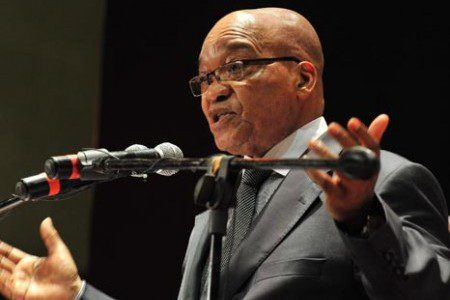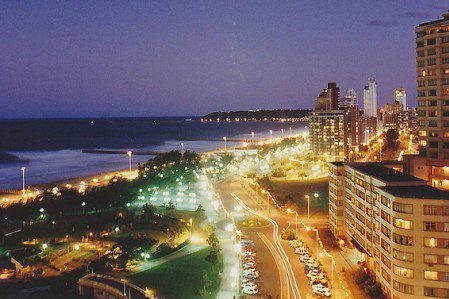
According to President Zuma, South Africa is doing well, and the country is flourishing under the direction and governance of the African National Congress (ANC) ruling party. There is a list of matters that raise concern about the bold statement Zuma has made. The infrastructure, crime, failing education system and corruption have not stopped, and have grown into uncontrollable ventures that the Zuma administration cannot control.
Why would Zuma make such a bold statement when it is an outright lie, and only made in an attempt to fool the majority one more time? Zuma does not comprehend the inanity of the ANC, nor does he realize South Africa is in trouble. Zuma does not acknowledge the shortcomings and is unable to grasp how inept the current leadership is. Perhaps uttering these statements mentally tricks Zuma into believing that all is well in South Africa.
Could it be that Zuma is becoming disorientated and unreliable as a president? During a trip to America in August 2014, Zuma was ill and apparently diagnosed with poisoning. One of Zuma’s wives, the president has asserted, was responsible for this dilemma. Not satisfied with the diagnosis, Zuma went to Russia for a second opinion and, apparently, the Russians confirmed it was indeed poisoning that had caused his ill health. Zuma has displayed erratic behavior over the past year, and perhaps the poison he consumed has affected his judgment.
The fuss and debates regarding the Nkandla issue never end, and it would appear that the president cannot grasp the truth of the wasteful expenditure, which includes the overspending, corruption and self-enrichment the president and contractors have managed to steal from hard working South African taxpayers. It is all dapper and brave of leader Julius Malema of the Economic Freedom Fighters to keep asking Zuma to pay back the money, and now Malema has taken the matter to the Constitutional Court in an attempt to force Zuma to pay back the money. The Democratic Alliance, the official opposition party, has instituted action against Zuma over the Nkandla issue in the Western High Court in a bid to prove that the president has indeed wasted taxpayers’ money.
South Africa is doing well under the Zuma leadership, so much so that there is a never-ending supply of money to support the tribal kings, wives and parliamentary ministers. There are flashy cars and a dozen triple-story houses for the elite. Travelling and holiday never stop. Alas, the majority continues to suffer and is ignored under the plight of poverty that rises daily.
So well is the country doing that the economic decline is not a matter of concern for the Zuma administration; it is something that will pass with time. The education system borders on collapse, and the incompetent teachers have no drive to initiate a competent system, thereby failing the youth of today.
The Zuma administration has not recognized the failure of state-run entities, and the consistent decline in service deliveries does not measure up to a state-run efficiently. The power supply giant under the Zuma leadership is collapsing and soon the country will remain in darkness, yet this is not a major problem for the government, as Zuma said all is well.
The public health sector, which according to Zuma is doing well, does not exist. It is a failed system on the verge of collapsing, as the few competent medical staff battle to save lives in the most disgusting of conditions. The general hospitals are disgraceful, dirty and overcrowded, and it is a real shame that in 21 years, the spiraling decline has no hope of recovering.
According to Zuma, South Africa is being governed very responsibly, and is even moving ahead. There is development, Zuma said during a parliamentary question-and-answer session. Zuma has lost the vision for South Africa which he once had, and cannot focus on reality. Perhaps Zuma is missing the point; it is not South Africa that is doing well, but only the Zuma administration, which is benefiting unduly from tax money. The blatant denial of the obvious is soothing the nepotistic consciousness and brainwashing the uneducated masses into believing that South Africa is flourishing.
Opinion by Laura Oneale
PUBLISHED TODAY ON THE GUARDIAN LV
Edited by Jennifer Pfalz




















